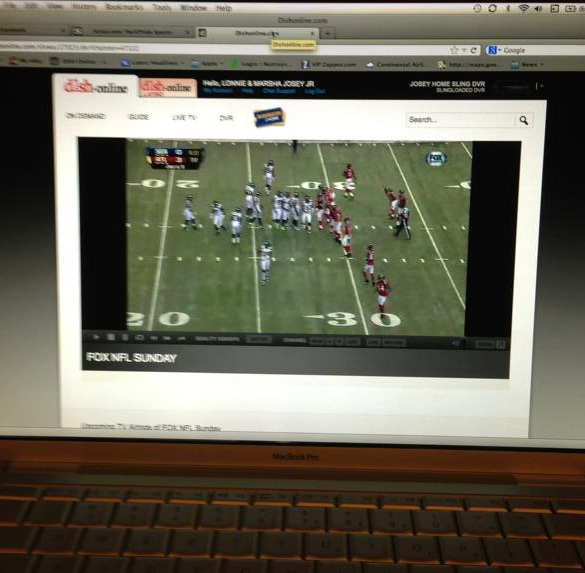
As we prepared to move to Germany from the United States, we were informed of the dreaded cultural shock roller coaster we could expect to experience: euphoria, homesickness, adjusting, and then accepting normalcy. These aren’t the official categories, but these applied to us.
First, you experience a sense of euphoria. Everything is new; your surroundings, the language, the people, the rules (and Lord knows, Germany loves rules), etc.
Next, over time, no matter how many new things you experience, you will have bouts of homesickness or longing for the familiarity of home. This period is different for everyone, but for me, it coincided with the start of the American football season and wanting to watch games before 2 am local German time. As a side note, one way to spot an American who has lived overseas for any length of time is if they distinguish between “American football” and “football”.

Homesickness comes and goes while you adjust to living outside the US. You adjust things in your life to fit your new surroundings. For instance, you cannot find that small jar of peanut butter that sells for 3x the price as in the States, so you give in and buy Nutella instead. Over time, through adjusting to your new surroundings, things become familiar, and bouts of homesickness become shorter and farther apart.

This leads into accepting normalcy, or at least your new normalcy. While you may not have mastered the language, you now understand what the cashier is saying when you check out at the grocery store. Or, you know which trains to take without having to study the departure boards at the stops. Things are familiar, and you are living in your “new home”.
Sometimes ‘frustration’ accompanies acceptance because you wish things were different. You realize this is just the way it is. Example: you know at 9 pm during the week that if something breaks in your apartment, there is no running out to a 24-hour Walmart to find a replacement. You have accepted that you wait until tomorrow and that you need to visit a store before 8 pm.
During our time in Germany, which became four years, we had heard of reverse cultural shock that could occur during repatriation back to the States. In the midst of living in the German culture, this idea seemed strange. But, after being back now ten months in the US, I can attest this to be true… true in my case.
In four years, I had returned to the States only three weeks. My wife had returned several times throughout the year, each year, for work. So, the degree of which she and I have experienced reverse culture shock are noticeable. The following is a list of things I miss having lived in Germany that I am adjusting to back in my “home” culture.
Public transportation – I walked to work in Germany. Now, my 8-mile drive to work takes anywhere from 20-40 minutes in New Jersey traffic. In Germany, you are not too far from any public transportation, even in the smaller villages

German language – while I never mastered the language, I developed it conversationally. Now, I may lose this ability for a lack of hearing this spoken in the US. The closest I come now is arranging an Uber driver, and even they don’t use an umlaut.
Architecture – driving through any section of a town in the US, you pass numerous strip malls, fast food, coffee shops – all cookie-cutter in appearance, even the churches. The same short drives in Germany in the Rheinland-Pfalz area, it is not uncommon to drive through a 400-year-old village or pass a cathedral or castle ruins from the Middle Ages.

Culture – even after four years, I did not have to go too long without learning something new about the German culture. While the US is a melting pot society, recognizing cultural differences can be challenging.
Vacation – Germans have a mandatory 6 weeks vs. the US having no Federal policy for any vacation (most companies offer 2 weeks starting out). Not only is the lack of vacation days something I miss, it is how Americans view them. In Germany, people plan their holiday schedule out with the expectation for everyone to use them. No one looks down upon their use.
In the US, vacations seem to be an after-thought: too much work, too little planning, not enough money, and an expectation to “check-in” for critical meetings. While we still vacation like we did in the US, we have 2 weeks fewer and can feel the pressure building to not use them.

Sick Time – in Germany, a couple of coughs, and you can expect to be asked to go home to get better… do not check-in via email or phone – to actually recover. In the US, unless a lung is coming out of your mouth, you should at least check your emails to keep in touch, or even better, suck it up and come into the office. After all, everyone else is here coughing in a meeting, you may as well.
Sugar – OMG, I didn’t realize how much sugar there is in most American foods. Even my dog’s food has added sugar. And, veggies purchased in the stores in the US have little flavor. Now, I will admit. I love being able to walk into the grocery store here and read the labels because everything is in English, but reading the labels is scary.

Restaurant Service – I miss the leisure experience of eating in a German restaurant where the waiter only comes to your table when you call them. You can sit at the table enjoying the company of your guests for hours. While when we first moved to Germany, this seemed like lousy service, now being interrupted every 5 minutes asking if we need anything is annoying as Hell.
Travel Distances – Where we lived in Germany, we could be in Paris or the Alps in 3 hours, drive to Venice in 8 hours, or fly to most European countries within 2 hours. But, now, if I drive from our home in NJ for 8 hours, I am in Virginia.
We learned that in Europe, 100 years is nothing & 100 miles is far; but, in the US, 100 years is a long time & 100 miles is nothing.

Rules – this is a broad category that drove me nuts in the beginning living in Germany, but over 4 years these become a part of you. Recycling plastic bottles and getting a refund, being quiet at certain times of the day, and traffic regulations. Honestly, how lazy are we Americans to not use a freakin’ turn signal while driving?
Autobahn – there’s nothing to add here. Once you have driven over 100mph, it is hard to keep it under 65-75 mph in the States. Plus, the roads here are terrible anyway to drive that fast and it’s a free-for-all on the interstate (see Rules).

I’m sure as more time passes my reverse culture shock will improve. I haven’t accepted my new normalcy, yet.

So amazing article! I usually adjust pretty easily and feel like home in an instant wherever I go (I guess, that’s why I’ve decided to be a digital nomad, haha) but feeling this kind of a rollercoaster really sounds like just part of the fun 🙂
LikeLike
Awesome perspective! I can’t imagine coming back to North America and adjusting after four years away. I spent only two weeks in Ireland two years ago and I had a crazy hard time getting used to traffic being on the right side when I got home!
LikeLike
Yeah, it was crazy
LikeLiked by 1 person
Wow, I could not agree more about what is now the super-annoying wait staff pests constantly interrupting the meals at American restaurants. Never was I ever asked how my food was in Germany. Every restaurateur assumes you are eating the best meal on the planet. American restaurants seem to have lots of doubt over the quality of their meals and need to constantly ask for reassurance.
And after 10 years in Germany, I also have a really difficult time with Americans never taking legal holidays seriously. Really. What is a holiday in the US anyway? All but Thanksgiving, Christmas, and the Fourth of July are totally ignored, and even those are a scramble if you do not refuse family and friend requests to attend a party.
Germans constantly refer to the “stress” in their lives, but really–they should try living here in America and find out what stress really is.
LikeLike